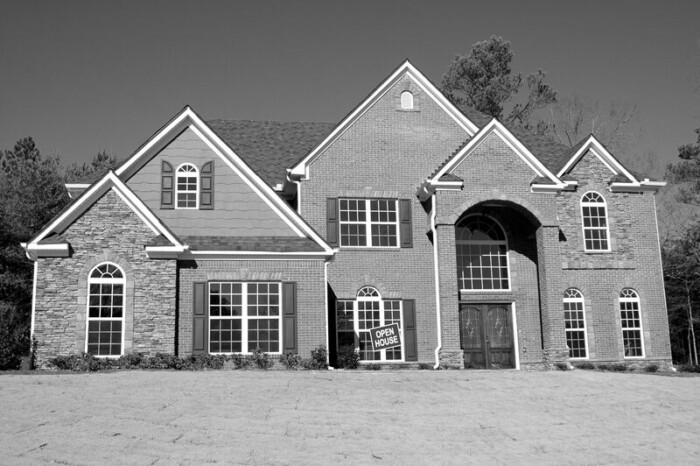
Bridge loans are the financial lifeline that provides interim funding for investors navigating the complexities of property transactions. But what exactly are bridge loans, and how do they work? If you find yourself pondering these questions and more, you’re not alone.
In this comprehensive guide, we’ll unravel the top Frequently Asked Questions (FAQs) that borrowers commonly have about bridge loans.
Bridge Loans FAQs
The following section sheds light on everything you need to know to make informed decisions about your real estate transactions. From understanding the basics of bridge loans to exploring their eligibility criteria and repayment terms, we’ve got you covered.
1. What is a bridge loan?
A bridge loan, also known as a swing loan or gap loan, is a short-term loan designed to bridge the gap between the purchase of a new investment property and the sale of an existing property. It provides immediate funds for borrowers to cover expenses such as down payments or mortgage payments while they wait for their existing property to sell.
2. How does a bridge loan work?
Bridge loans provide temporary, interim financing to cover the purchase of a new investment property until the borrower’s existing property is sold. Once the existing property is sold, the proceeds are used to pay off the loan. Bridge loans from HCS Equity are secured against an asset, that is, the borrower’s existing property which is either listed for sale or in escrow.
3. When is a bridge loan used?
Bridge loans are typically used when investors need immediate cash to acquire a new investment property independently of the sale of the current property. A few more situations when a bridge loan might be a good idea is when the investor lacks the financial means to make a down payment without first placing the current property on the market or when they choose to buy a property requiring substantial repairs and renovations. Another common scenario is when the goal is to expedite the process for properties involved in probate.
4. What is the typical bridge loan term?
The typical term for bridge loans by HCS Equity is usually between six months to one year, depending on the specific situation. This means that we expect the loan to be repaid within this time frame. However, we’re willing to offer longer terms depending on the borrower’s unique needs, e.g., in case of any unexpected delays.
5. What is the interest rate on bridge loans?
As a result of the short-term nature of the loan and the increased risk for the lender, the interest rates on bridge loans from private hard money lenders are generally higher compared to conventional lenders.
With most lenders, rates are usually subject to a number of factors, including the borrower’s credit score, loan-to-value ratio, and market conditions. Nevertheless, HCS Equity provides competitive interest rates tailored to suit the borrower’s financial requirements.
6. What is the maximum bridge loan amount I can borrow?
The maximum bridge loan amount depends on various factors, such as the value of the borrower’s existing investment property, the purchase price of the new property, the loan-to-value (LTV) ratio, and the lender’s policies. Typically, our bridge loans may cover up to 65% of the current property’s equity, but we may cross collateralize multiple properties to provide enough funds to complete the purchase.
7. What are the eligibility criteria for a bridge loan?
Eligibility criteria for bridge loans vary by lender but may include factors such as credit score, financial stability, debt-to-income ratio, and the value of the collateral property.
At HCS Equity, we base our loan approval decision on the available property equity. This means that borrowers must prove that they have sufficient capital to make a 35% or greater down payment or that they own a property that can be used as collateral for the loan. In most cases, appraisals are not required.
8. Can I get a bridge loan with a bad credit score?
Conventional lenders typically prefer borrowers with good credit history, so it may be challenging to secure a bridge loan if your credit score is affected. However, most private hard money lenders may be willing to work with borrowers with lower credit scores. Creditworthiness is among the criteria we consider at HCS Equity when evaluating an application, yet it does not automatically disqualify you from being approved.
9. What types of properties can be financed with a bridge loan?
Bridge loans offer flexibility and convenience for financing a wide range of property types in various real estate transactions. This includes residential homes (single-family or mixed-use), investment properties, commercial real estate, land, and properties requiring renovations.
10. Do bridge loans have a prepayment penalty?
Prepayment penalties for bridge loans vary by lender. Some lenders may charge a penalty for paying off the loan early, while at HCS Equity, bridge loans can be repaid in full at any time without incurring any prepayment penalties.
11. What is the typical bridge loan approval time?
The approval time for bridge loans can vary depending on the lender and the borrower’s unique circumstances. Bridge loans from HCS Equity are usually funded in as little as 7 to 10 business days. Being able to secure financing quickly allows borrowers to capitalize on investment opportunities, avoid delays, and negotiate a better deal.
Secure A Private Money Bridge Loan Through HCS Equity
At HCS Equity, we take pride in offering creative loan products tailored to meet the diverse financial needs of our clients. With a commitment to flexibility and efficiency.
We understand the importance of quick and reliable financing, which is why we have a streamlined loan approval process with little to no documentation required. Our bridge loans are funded in as little as 7 to 10 business days, ensuring that investors can seize opportunities without any delays.
Let HCS Equity be your trusted partner in securing a bridge loan for your next property transaction. Contact us to discuss your bridge loan requirements today.










